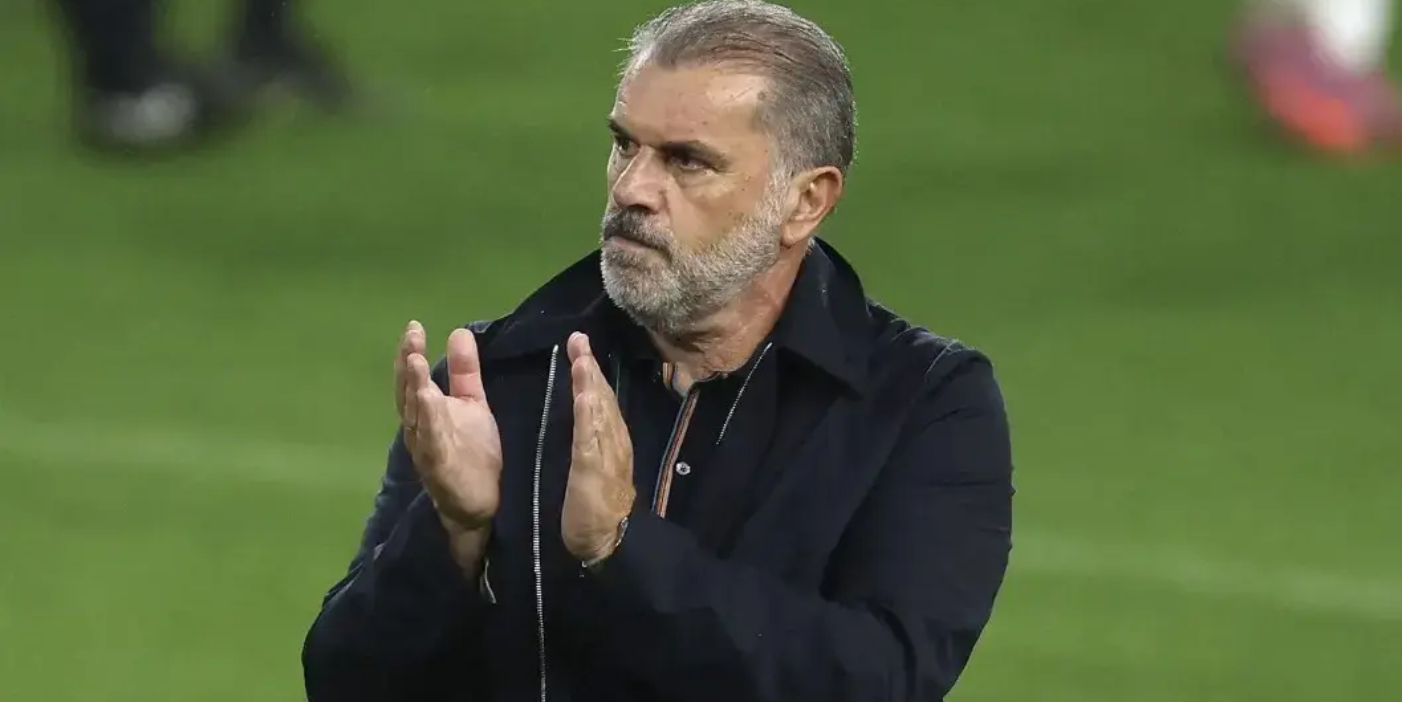
In the Premier League, Nottingham Forest lost 0-2 to Newcastle United. After the match, Forest manager Ange Postecoglou attended the post-match press conference.
Reporter: At the end of the game, you seemed to have little interaction with the players on the pitch. When you applauded the fans, it felt like the players were all ahead of you? Did you walk off the pitch alone? Of course, this is just what I saw—Is there any special meaning behind it? Do the players still support you? Can you still feel their support now?
Postecoglou: If you want to dig up talking points, you can definitely find them. Look, the jacket I’m wearing today is different from usual, and I’m standing in a different spot too—don’t overinterpret these details, honestly.
I think this might be an interesting "game": there’s a new talking point every week. This week it’s me; maybe next week I’ll be gone, and then someone else will become the focus. Everyone thinks it’s fun, but I don’t care.
Like I said, I like my current situation—I have to fight for everything. That’s what I’ve been doing throughout my entire career. External scrutiny means nothing to me, and I’m not someone who wallows in self-pity. If anyone thinks I’m not enjoying this job right now, they simply don’t know me.
Reporter: You mentioned there are some things that need to be addressed. What exactly are those things? Can you be more specific? I assume it’s not just the training ground issue, right?
Postecoglou: It’s indeed not just the training ground issue, but the training ground is part of it—because we don’t have proper training conditions at all right now. Take players like Douglas, Luiz, Sáchenko, and Maríllo, for example: they need to train, but they’ve barely trained with the team.
There are also some players who have integrated into the team, but they haven’t had much structured training either, because we’ve had too many games recently. So the next two weeks will be crucial for us—we can conduct structured training with the players who stay behind.
Fortunately, some key players for us will stay. Opportunities like this are rare, so after this international break, we’ll be much better prepared for the next game than we were for this one. Additionally, we’ll have more in-depth discussions, such as assessing how the players are adapting.
In my view, the overall situation is positive—the team has undergone a shift in its style of play, and the players have embraced that shift. That’s undeniable. While the results haven’t been good, that’s obvious. But if you only look at the results, there’s no need for assessment at all—you just say "the results are bad" and that’s it.
But I don’t look at it that way. Moreover, in the more than 20 days since I took over, I have indeed seen progress from the team.
Reporter: Given time, can you turn the current situation around?
Postecoglou: No, no—it’s not "hopeless." What I’m saying is, what’s wrong with facing difficulties? Honestly, what’s wrong with it? Why does everything have to go smoothly and be perfect? I’m sure your parents faced hardships in life too, but they didn’t give up. Maybe at some moments, things also seemed "hopeless," but they didn’t give up on you, did they?
I’m not accusing you, so don’t get me wrong. What I’m trying to say is that the current situation seems to be: as soon as something goes wrong, everyone thinks "it’s over, that’s it," and then they want to change things, break things up. But all things that need improvement must go through a tough period. Like I said, this is nothing new to me.
So I don’t see this as "hopeless"; instead, I see it as an exciting opportunity. That’s why I took this job, and now I’m more convinced of that than ever. But at the same time, you have to accept that to achieve the goal, you must go through this tough battle and this difficult phase.
Reporter: Of course, one more question: has your confidence been affected? You haven’t lost your confidence, have you?
Postecoglou: But that’s exactly my point—why would I lose confidence? Just because I’m facing difficulties? Do you think I’d be sitting here at 60 if that were the case? I started coaching semi-pro teams in Australia when I was 32, and now at 60, I’m standing on a Premier League touchline. Do you think I’d lack confidence or be afraid of challenges?
I didn’t get here through connections. In fact, I’ve always sought out challenges—even when I was at school, I’d actively seek out people I knew would beat me to compete against. That’s who I am.
So, like I said, I fully understand that this is the intensity of the Premier League: there’s always a manager in the spotlight. Now it’s my turn. But I think, like most managers, we actually enjoy these moments. I’d be surprised if any manager doesn’t like the kind of challenge I’m facing right now.




